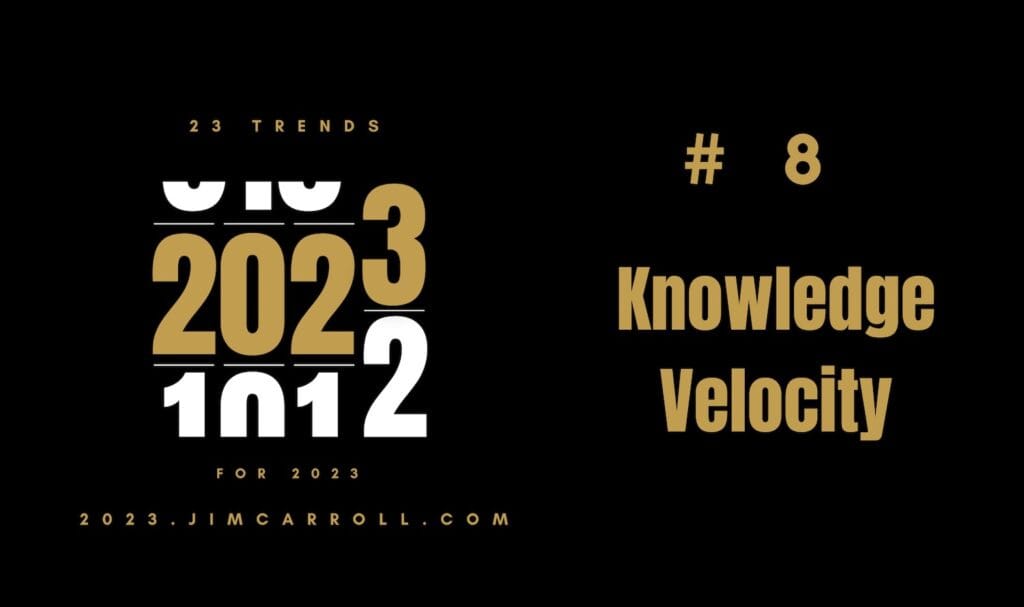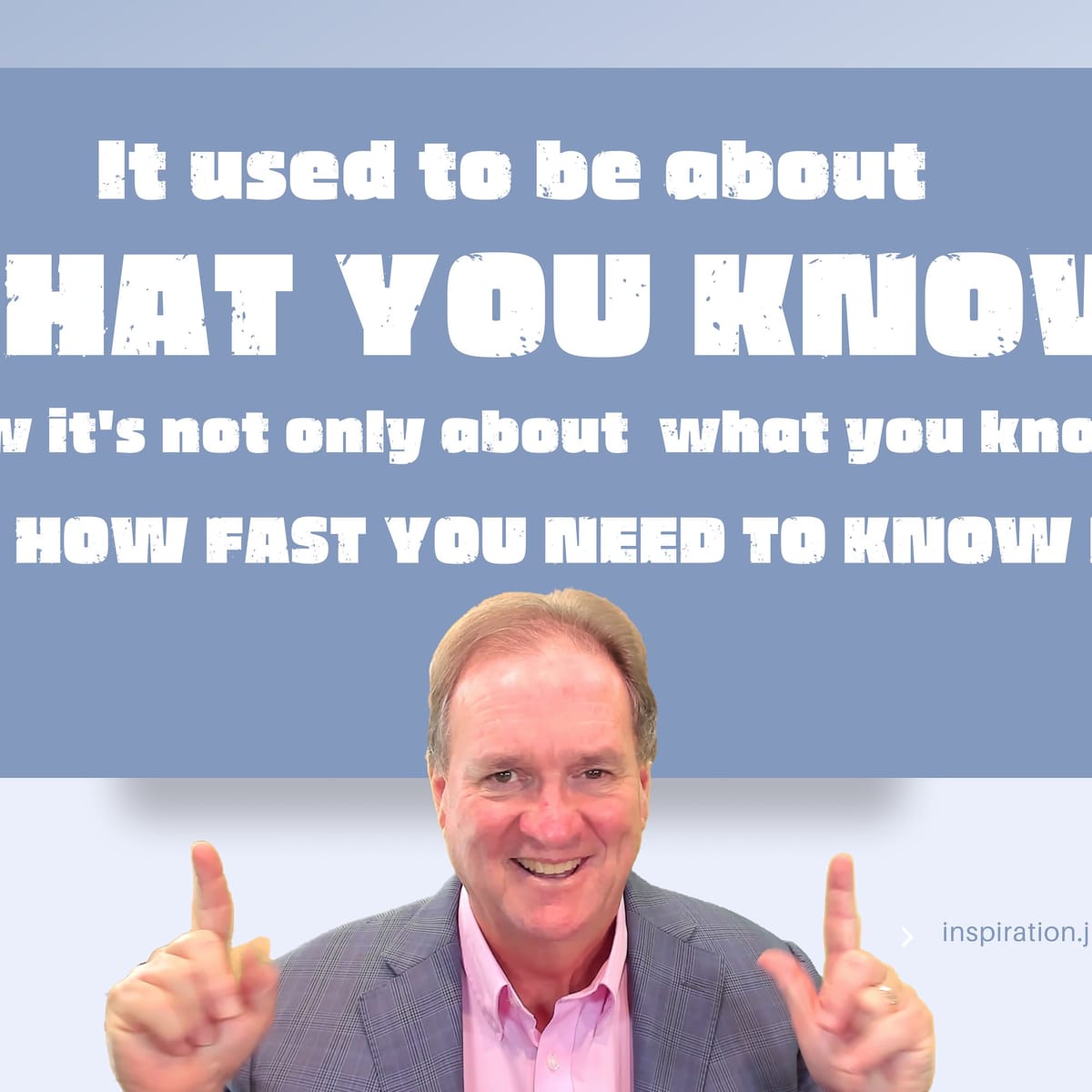The acceleration of knowledge - the impact of trend #8 of my "23 Trends for 2023" will continue to be one of the most defining trends that organizations will face in the year to come - particularly as they continue to try to manage the impact of trend #9 - faster work back pushback!

Knowledge velocity? Buckminster Fuller spoke of the “Knowledge Doubling Curve” in 1982:
- he suggested that in 1900, human knowledge doubled approximately every 100 years
- by the end of 1945, the rate had come down to every 25 years
- and by 1982, every 13 months
1982 looks quaint - a fellow futurist, Ray Kurzweil, has suggested that with the arrival of the Internet it is now doubling every 12 hours - think about that! Another way to think about this is that just as radioactive materials have a half-life, so too does knowledge - that's the length of time that it takes before half of a set of knowledge is made obsolete or superseded by new knowledge. And the half-life of knowledge is decreasing at an accelerating pace.
These numbers are, of course, extremely subjective - there is no way to measure such a metric! And given the widespread presence of conspiracy theories around us, it can be said that we aren't seeing the generation of knowledge but the manufacturing of idiocy.
Regardless, there is no doubt that we live in an era of knowledge acceleration. That's why I've always suggested that what people and organizations need to concentrate on is what I call just-in-time knowledge - getting the right knowledge, at the right time, for the right purpose.
The acceleration of knowledge has pretty profound implications for 2023 and going forward because organizations will find it increasingly difficult to train people in the skills required to do their job and far more challenging to find the niche skills that are necessary to get things done. The continued arrival of new knowledge leads to new knowledge demands that didn't exist before, and if organizations don't identify and align with the new knowledge trends impacting them, they will fall behind.
I described that in this video, talking about the impact on the typical construction worker with the arrival of new materials, technologies, methodologies, and construction concepts:
I tell the same story here in terms of an HVAC contractor who arrived in our home years ago, only to be confronted with a new fangled, Internet connected thermostat.
The story of knowledge in the video tells itself:
I got one of the very first Internet enabled thermostats about 15 years ago. My HVAC contractor came in the house and he looked at it, "Whoa, this is kind of complicated! I can do the wiring that goes into the air conditioner in the furnace, but this Ethernet stuff, this computer stuff, I have no idea what to do with it." And I said, "that's okay, my 12 year old will do the Ethernet wiring," and he did.
Think about what has happened here. That HVAC contractor, all of a sudden the knowledge that he or she needs to know to do his or her job has forever changed.
We are in a world in which trucks today contain more technology than a Cessna airplane. We are in a world in which what is happening is the knowledge that is required in industries is changing. MercedesBenz is going out and investing a billion dollars to get the insight and the capabilities into battery science and battery and electric vehicles and self-driving vehicles. We are in a world in which organizations and industries are establishing ecosystems to help them put in place the knowledge and the skills and the capabilities to take themselves into the faster future.
And what are you doing to align yourself to new ecosystems to take yourself into a world in which increasingly just-in-time knowledge, the ability for niche knowledge, knowledge partnerships, complexity partnerships are defining your future. But wait, there's more.
That's the key question. What will you do in 2023 to align yourself to a world of new knowledge?
When we don't even yet know what new knowledge might yet exist?
That's why just-in-time knowledge, in the context of just-in-time knowledge, is a key capability going forward.
Futurist Jim Carroll coined the phrase just-in-time knowledge in his 1997 book, Surviving the Information Age. He still believes it is one of the most critical core skills that people and organizations must master to align to a faster future.

